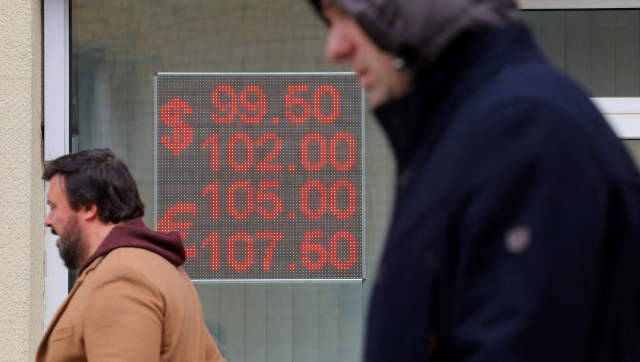According to a Headhunter survey, nearly half of Russians believe their wage does not cover basic expenses, up 20 percentage points in just two years as Moscow diverts record financial resources to waging its war in Ukraine. The results of a poll conducted in October of nearly 5,000 people brought Russia’s economic problems into sharp relief and may cause problems for the government as the country prepares for the upcoming presidential election in March, in which President Vladimir Putin is certain to win re-election after more than two decades in office. As proof of the severe labour shortages in Russia, this year’s record-low unemployment rate has increased inflationary pressure. Already at 13%, interest rates are anticipated to increase further to combat inflation. Only one in five Russians polled indicated that their salary was sufficient to pay for basic expenses without accounting for income from side activities or investments. “Yes, with difficulty,” replied another 36% of respondents, while 45% said their salary was insufficient. According to a survey by Headhunter, that is an increase from 25% in 2021 and 39% in 2022. Before beginning what it terms a “special military operation” in Ukraine in 2021, 36% of those polled thought their pay was enough. More over half of the 45% who reported not having enough money for essential expenses claimed they were at least 20,000 roubles ($212) short each month. According to data from Rosstat, the average nominal monthly salary for Russians in July was 71,419 roubles ($756). Russia’s real salaries are currently rising quickly as weapons firms scramble to fulfil government demands. While competing with compensation, other businesses often struggle to retain employees. Consumers felt the effects of double-digit inflation in 2022, and although the economy is expected to rebound this year from a 2.1% decline in gross domestic product (GDP) in 2022, the International Monetary Fund (IMF) and some of Russia’s own estimates are pessimistic about the country’s long-term prospects. If the rouble turns out to be stronger than anticipated and positive economic assumptions turn out to be untrue, analysts warn that Russia may fall short of its 2024 budget revenue target and be compelled to raise company taxes. (With agency inputs)
Only one in five Russians polled indicated that their salary was sufficient to pay for basic expenses without accounting for income from side activities or investments
Advertisement
End of Article


)

)
)
)
)
)
)
)
)



